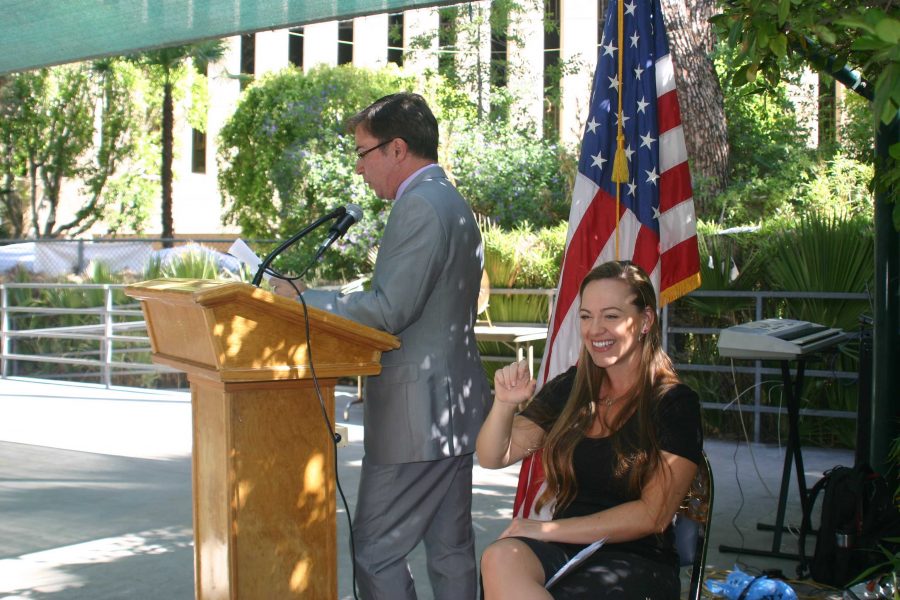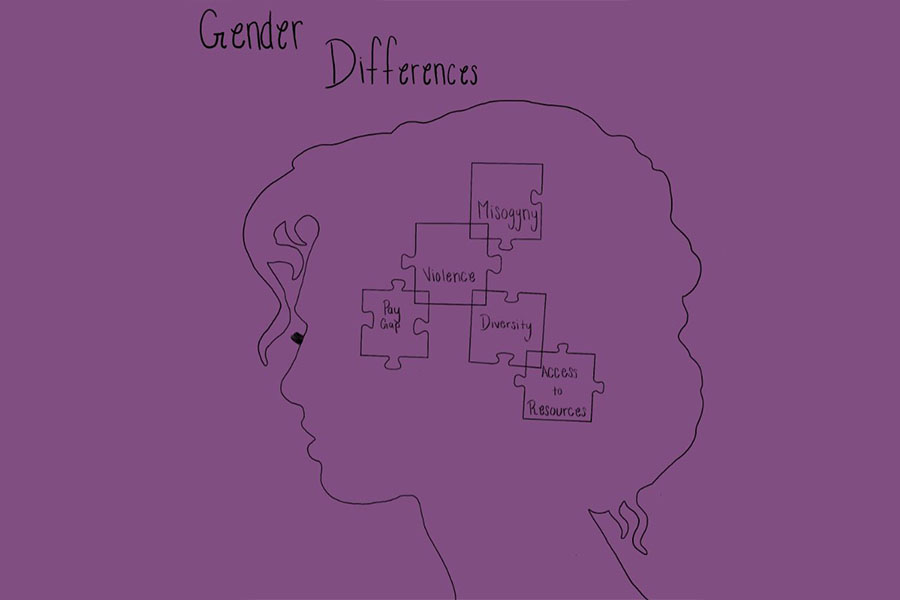Communication is one of, if not the most important aspect of living in a society such as ours. Language is “central to the formation and interaction of all social groups, from family to community to nation,” according to an article in the “The Annals of the American Academy of Political and Social Science.”
Learning, teaching, making plans for your future, ordering coffee, even just getting your friends all together for dinner, all of these require the ability to transfer ideas and communicate desires.
It’s my view that communication, in its primitive form of words, mere representations of thoughts and feelings, can be utterly unreliable and frustrating. By learning the most we can about it we can gain insight and perspective not just in how to talk to each other, but in how to treat, think about and perceive our entire world and, in turn, make us better at it.
A study published in Dissertation Abstracts International by J.M. Cade supports the idea that foreign language programs not only improve test scores and divergent thinking, but also allow students to succeed in and understand more about their first language. Learning a second language might even help you understand your first one.
Beyond that, the American Council on the Teaching of Foreign Languages website provides a host of academic, cognitive and cultural benefits to learning a language, ranging from improving your reading abilities and evaluation skills, garnering interest in new cultures, to even offsetting worsening brain functions during old age.
Emil Cioran, a Romanian philosopher and author once said “It is no nation we inhabit, but a language. Make no mistake: our native tongue is our true fatherland.”
Mirroring this notion, an article in The French Review, another language focused academic journal, states that children learn languages so well because it is their way of understanding and functioning in the world.
“What makes the learning stick? A remarkable adhesive, the meaning the words have acquired through use as symbols of behavior,” according to the study. “The children begin to learn the language immediately as a functional tool.”
In other words, your language builds your entire world. Understanding everything from the complex equations in your math text book to knowing the difference between mean and kind is based on language. If that’s the case, opening yourself up to more languages can drastically alter your perception of the people you know, the subjects you learn and the world around you. Doesn’t it seem like a waste to confine yourself to just one way of understanding the world?
Tina Sirimarco, a sign language interpreter at Moorpark College, has been signing since 2001. In addition to being knowledgeable about the history and mechanics of signing, she also has insights into how the mere language we choose to communicate with influences our understanding of each other and what we are getting across.
“It wasn’t until I met deaf people and took ASL (American Sign Language) classes that I realized sign language is simply another mode of communication,” she said. “Just as some hearing people may have louder voices or bigger personalities the same is true for deaf and hard of hearing people.”
Sirimarco recounted an experience early in learning sign language where she interpreted a man’s large signs to mean anger, but quickly realized his large space to sign in was representative and expressive and of his personality and not his emotional state.
Sirimarco went on to say that she supports learning as many languages as possible.
“I took ASL to fulfill my foreign language requirement at UCSB,” she said. “I wouldn’t have thought it would become the heart of my career, but it has.”
Taking a foreign language may not just give you the skills and brain power to succeed, but it may give you a whole new path to follow in life and career.
I know that, for myself, learning Japanese has opened a whole new outlook on how I both present myself and how people communicate with each other. I’ve become much calmer and open-minded since being introduced to the basics of the language.
Caylie Conlon, 18-year-old pre-nursing major, talked about how learning Spanish has helped her with her job and how it makes communication more comfortable between her and native Spanish speaking customers.
“You need it more than you think you do,” she said.
The lesser-known benefits of learning a second language number so high I can’t possibly include them all. There’s even a study from the Linguistics and Language Behavior Abstracts database suggesting that multilingual students can produce higher quality and better written scientific hypotheses!
It seems, then, that foreign language study can improve your life in a multitude of ways. So don’t wait to start exploring a new culture or dissuade yourself from tackling that foreign language requirement when registration comes around again. You may find a whole new way to express yourself.













